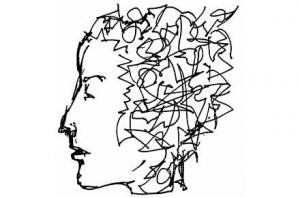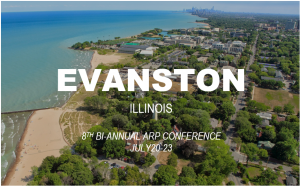P: The Online Newsletter for Personality Science
P is the official ARP newsletter. Published once each year, it features reports from the ARP officers and journal editors, as well as feature articles and member news.
Letter from your President

Dear ARP Members,
As we are approaching the 8th biennial meeting of ARP in July, I’m getting excited to see y’all in person after this extended hiatus due to the pandemic. It’s been too long since we’ve had a chance to meet in person, share our research, exchange ideas, and reconnect with friends and colleagues. In this newsletter, I would like to take the opportunity to update you on some of the latest ARP initiatives and express my gratitude to all of those who have contributed to make ARP what it is today. Read More.
Preprints

Jack Bauer – University of Dayton<
How do we make sense of our lives? What makes a good life? This special showcases how the unique and personal stories of individuals in a range of life contexts express, challenge, and expand scientific and cultural notions of a good life. The issue is dedicated to the inimitable and widely loved Will Dunlop, who was it’s managing co-editor at the time of his death. Read more.

Aaron Cherniak – Stockholm University
In this paper, we set an agenda for a psychedelic science of spirituality and religion, based on a synthesis of attachment theory with the Relaxed Beliefs Under pSychedelics (REBUS) model. Attachment theory proposes that people develop internal working models (IWMs) of interactions with others from their relational experiences with caregivers. Read more.

Amanda J. Wright – Washington University in St. Louis
The current study integrates seven longitudinal datasets (N = 81,980) to comprehensively examine the nature of the unique relationship that changes in the Big Five traits have with numerous outcomes across a broad range of ages. Results indicated that changes in personality traits are prospectively related to numerous outcomes, above and beyond associations due to static trait levels. Read more.
.
Opinion Pieces

Ryne Sherman – Hogan Assessment Systems
When people think about psychology, they are usually interested in questions about human nature—why people behave as they do? Personality psychology is the academic discipline whose subject matter is the nature of human nature. Freud was the first important contributor to the field and, until the mid-1960s, some familiarity with psychoanalysis was the mark of an educated person. Read more.

Peter Harms – The University of Alabama
A defining moment in my career was the 2005 ARP pre-conference in New Orleans when Harrison Gough won the Jack Block Award for Distinguished Research in Personality. Frail though he was at the time, Gough delivered a talk that was as sad as it was hopeful. He
reflected on his career and explained what he had tried to accomplish in his work. Read More.

Alexander Vinogradov – Taras Shevchenko National University of Kyiv, Ukraine
Early in my career as an organizational psychologist, I encountered a phenomenon that intrigued me a lot. When responding to personality tests, my adult subjects frequently faced difficulties choosing a single option. They explained to me that their behavior was highly dependent on the circumstances. They told me: “depends on the situation”. Read more.

Sandra Grinschgl & Aljoscha C. Neubauer – University of Graz
Humans have always strived to enhance themselves. For instance, different ways to increase intelligence in adults have been tested, however, so far none have proven to be successful (Jaušovec & Pahor, 2017). In the 21st century, public debates about human enhancement seemed to increase due to the emerging philosophy of Transhumanism. Read more.

Integrating dimensional models of psychopathology with functional treatment-related processes: Psychological Flexibility as a blind spot
John J. Donahue – The University of Baltimore
A diagnostic classification system is useful to the extent it advances treatment development and implementation that effectively reduces suffering. The introduction in 1980 of the categorical diagnostic approach based on polythetic criteria in the third edition of the Diagnostic and Statistical Manual of Mental Disorders (DSM) directly contributed to a plethora of outcome trials examining the efficacy of psychotherapy treatment protocols for specific disorders. Read more.

David Funder & Gwendolyn Gardiner – The University of California, Riverside and the University of Toronto, respectively
This paper critically evaluates the conventional insistence on establishing measurement invariance (MI) in cross-cultural psychology. We argue that complex and seemingly arbitrary benchmarks for assessing MI can be unrealistic and effectively prohibit meaningful research. The widespread use of various MI criteria creates unnecessary and often unattainable hurdles for cross-cultural researchers who have made the effort to collect data in multiple cultural contexts. Additionally, the prohibitionist tone of discussions surrounding MI is unhelpful and unscientific. Read More.
See you in Evanston!!

Past Issues
Issue 14 – August 2020 (printable version)
Issue 13 – June 2019 (printable version)
Issue 12 – November 2017 (printable version)
Issue 11 – November 2016 (printable version)
Issue 10 – November 2015 (printable version)
Issue 9 – December 2014 (printable version)
Issue 8 – October 2013 (printable version)
Issue 7 – February 2013 (printable version)
Issue 6 – November 2011
Issue 5 – June 2010
Issue 4 – July 2009
Issue 3 – September 2008
Issue 2 – January 2008
Issue 1 – April 2007
